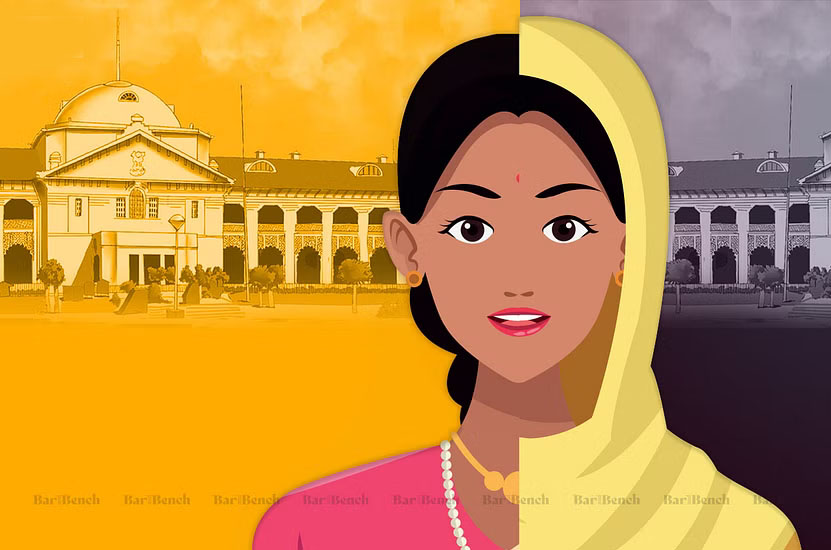Right to freedom of religion, covered in Articles 25, 26, 27 and 28, provides religious freedom to all citizens of India. The objective of this right is to sustain the principle of secularism in India. According to the Constitution, all religions are equal before the State and no religion shall be given preference over the other. Citizens are free to preach, practice and propagate any religion of their choice.
Anti-conversion laws date back to the days of British rule in India. However, the earliest laws were enacted by Hindu princes in territories not controlled by the British Empire.
The most prominent early laws were the Rajgarh State Conversion Act of 1936 in modern Madhya Pradesh state, the Patna Freedom of Religion Act, 1942, in modern Bihar state, the Sarguja State Apostasy Act of 1945 in today’s Chhattisgarh and the Udaipur State Anti-Conversion Act of 1946 in modern Rajasthan.
The “Indian Converts Regulation and Registration Bill” was proposed in 1954 which required compulsory licensing of missionaries and the registration of converts across India. However, the bill was dropped at the request of then Prime Minister Jawaharlal Nehru.
In 1960, the Backward Communities (Religion Protection) Bill was proposed to prevent the conversion of Hindus to “non-Indian” faiths throughout India and it also met with same fate and was also rejected. Again in1979, a “Freedom of Religion Bill” seeking official curbs on religious conversion throughout India was proposed and was rejected.
Orissa was the first state where an anti-conversion law was enacted in 1967, followed by Madhya Pradesh in 1968 and Arunachal Pradesh in 1978.
ANTI CONVERSION ACT HAS BEEN PASSED IN THE FOLLOWING STATES:
- Gujarat Freedom of Religion Act, 2003
- The Himachal Pradesh Freedom of Religion Bill, 2006
- Rajasthan Freedom of Religion Bill, 2006
- Arunachal Pradesh Freedom of Religion Act, 1978
- Orissa Freedom of Religion Act 1967
- Madhya Pradesh Dharma Swatantraya Adhiniyam 1968.
- Chhattisgarh Dharma Swatantrya Adhiniyam 1968
- Tamil Nadu Prohibition of Forcible Conversion of Religion (TNPFCR) Act, 2002 (ABOLISHED)
- Gujarat Freedom of Religion Act, 2003
An Act to provide for freedom of religion by prohibition of conversion, from one religion to another, by the use of force or allurement or by fraudulent means and for the matters incidental thereto.
The punishment is imprisonment maximum for three years and also be liable to a fine, which may extend to rupees fifty thousand:
And if conversion is in respect of a minor, a woman or a person belonging to the Scheduled Caste or Scheduled Tribe shall be punished with imprisonment for a term which may extend to four years and also be liable to a fine which may extend to rupees one lakh [one hundred thousand].
- The Himachal Pradesh Freedom of Religion Bill, 2006
A bill to provide for prohibition of conversion from one religion to another by the use of force or inducement or by fraudulent means and for matters connected therewith or incidental thereto.
This Act may be called the Himachal Pradesh Freedom of Religion Act, 2006
Christians and Dalits decided to challenge the Himachal Pradesh Freedom of Religion Act 2006 in the High Court at a state-wide meeting organized by All India Christian Council at Shimla on February 22, 2007 .
- Rajasthan Freedom of Religion Bill, 2006
A Bill ,to provide for the prohibition of conversion from one religion to another, by the use of force or allurement or by fraudulent means and for matters incidental thereto.
This Act may be called the Rajasthan Dharma Swatantraya Act, 2006
Statement of Objects and Reasons
It has been observed by the State Government that some religious and other institutions, bodies and individuals are found to be involved in unlawful conversion from one religion to another by allurement or by fraudulent means or forcibly which at times has caused annoyance in the community belonging to other religions. The inter-religion fabric is weakened by such illegal activities and causes law and order problem for the law enforcing machinery of the State.
In order to curb such illegal activities and to maintain harmony amongst persons of various religions it has been considered expedient to enact a special law for the purpose.
- Arunachal Pradesh Freedom of Religion Act, 1978
An Act to provide for prohibition of conversion from one religious faith to any other religious faith by use of force or inducement or by fraudulent means and for matters connected therewith.
No person shall convert or attempt to convert, either directly or otherwise, any person from one religious faith to any other religious faith by the use of force or by inducement or by any fraudulent means nor shall any person abet any such conversion.
- Orissa Freedom of Religion Act 1967
An Act to provide for prohibition of conversion from one religion to another by the use of force or inducement or by fraudulent means and for matters incidental thereto.
Any person intending to convert his religion, shall give a declaration before a Magistrate, 1st Class, having jurisdiction prior to such conversion that he intends to convert his religion on his own will.
- Madhya Pradesh Dharma Swatantraya Adhiniyam 1968.
These rules may be called the Madhya Pradesh Dharma Swatantrya [Madhya Pradesh Freedom of Religion Act] Rules, 1969.
An Act to provide for prohibition of conversion from one religion to another by the use of force or allurement or by fraudulent means and for matters incidental thereto.
Intimation to be given to District Magistrate with respect to conversion
- Chhattisgarh Dharma Swatantrya Adhiniyam 1968
The Bharatiya Janata Party (BJP) government in Chhattisgarh is considering making the Anti-Conversion Law more stringent with provisions for 10 years imprisonment and a fine of Rs 10 lakh for any one involved in illegal conversion.
“There are certain shortcomings in the existing Chhattisgarh Dharma Swatantrya Adhiniyam 1968 and we want to change that,” Home Minister Ram Vichar Netam said on 24 May 2006. “We want to change that and yesterday only I had a discussion with the Law Secretary on the issue,” he said.
- Tamil Nadu Prohibition of Forcible Conversion of Religion (TNPFCR) Act, 2002
The southern state of Tamil Nadu revoked its anti-conversion law last May after the BJP government was defeated in the 2004 general elections
Anti-conversion laws are currently in force in Arunachal Pradesh, Chhattisgarh, Gujarat, Madhya Pradesh and Orissa. The southern state of Tamil Nadu revoked its anti-conversion law last May after the BJP government was defeated in the 2004 general elections
The federal government created Chhattisgarh in November 2000, splitting it from Madhya Pradesh. Chhattisgarh retained the Freedom of Religion Act adopted by Madhya Pradesh in 1968. The pro-Hindu Bharatiya Janata Party (BJP), still in control of the state government, believes the existing law is not rigorously enforced and contains too many loopholes.
Under current provisions, a conversion offence is punishable with imprisonment for a maximum of two years, and a maximum fine of Rs 10,000. However if proposed changes were to take effect, “An offence under the law will be non-bailable and punishable by imprisonment of up to four years and a fine up to Rs 1,00,000.” The term “Allurement” is so vaguely defined that it almost covers any humananitarian consideration also towards fellow human being. It means offer of any temptation in the form of any gift or gratification, either in cash or kind; grant of any material benefit, either monetary or otherwise;
Anjna Masih
Advocate







Leave A Comment